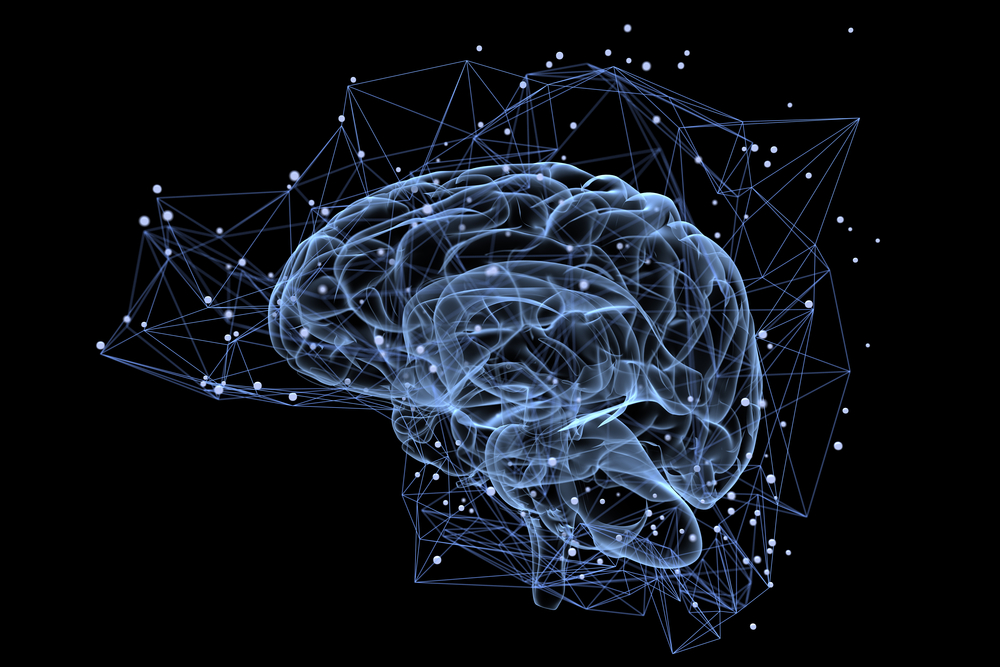
The concept of schizophrenia is dying. For decades she was under attack by psychology, and now, apparently, was mortally wounded by psychiatry, the very profession that once supported it. Nobody will mourn her.
Today, the diagnosis of "schizophrenia" is associated with a decrease in life expectancy of almost two decades. According to some reports, only one person out of seven recovers. Surprisingly, despite the proclaimed breakthroughs in treatment, the proportion of recovering people does not increase over time. Something is clearly wrong here.
Part of the problem was the very concept of schizophrenia.
Evidence that schizophrenia is a separate disease has been seriously undermined. Just as we now have the concept
of autism spectrum disorders , it is argued that psychosis (which is usually associated with disturbing hallucinations, delusions and confused thoughts) also exists within the continuum and manifests itself in different quantities. Schizophrenia - the lower edge of the spectrum of this continuum of sensations.
Jim Van Os, a professor of psychiatry at the University of Maastricht, argued that it was impossible to move on to this new way of thinking without changing the language norms. He proposes to abolish the term "schizophrenia." Instead, he offers the concept of a psychosis disorder.
Another problem is that schizophrenia is described as a “hopeless chronic brain disease.” As a result, people who have been diagnosed and their parents are told that it would be better to even have cancer - it would be easier to cure him. But this approach to schizophrenia excludes people with a positive prognosis. For example, those who recovered from her are told that "it was not schizophrenia."
Schizophrenia in the form of a separate, hopeless deterioration of the brain as a result of the disease, according to van Osa, "does not exist."
Understanding the frustrations
Schizophrenia can be a whole bunch of different things. A prominent psychiatrist, Professor
Robin Murray , describes it this way:
I think that soon the concept of schizophrenia will become obsolete. This syndrome is already beginning to crumble, for example, in cases when a
variation in the number of copies of genes , drug use, an unfavorable social environment, etc., is detected. This process will be accelerated and the term schizophrenia will go down in history, just as the term "
dropsy " has gone.
Researchers are studying various reasons why people may experience feelings that were considered characteristic of schizophrenia: hallucinations, delusions, confused thoughts and behavior, apathy, and lack of emotion.
In the past, characteristic errors have happened. For example, based on the study of the parasite
Toxoplasma gondii , transmitted
to people from cats , researchers I. Fuller Torri and Robert Yolkin argued that "the most important cause of schizophrenia may be an infectious cat." But it was not so.
 Toxoplasma gondii may be the cause of schizophrenia, but it is hardly the most important
Toxoplasma gondii may be the cause of schizophrenia, but it is hardly the most importantThe facts suggest that acquiring Toxoplasma gondii at a young age may increase the chances of making a diagnosis of "schizophrenia." However, the chances are no more than doubled - and this, at least, is comparable to the effects of other factors, and, possibly, is much less.
For example, difficult childhood, abuse of marijuana, viral diseases of the central nervous system in childhood - all this increases the chances of making a diagnosis of "psychotic disorder" (for example, schizophrenia) by 2-3 times.
Compared to people who do not use marijuana, daily use of strong, high THC, marijuana is associated with a fivefold increase in the chances of developing psychosis. Compared to people who have not been injured, people with five different types of injuries (including sexual harassment and beatings) are fifty times more likely to get psychosis.
 Daily smoking of strong marijuana increases the chance of acquiring psychotic disorder by five times.
Daily smoking of strong marijuana increases the chance of acquiring psychotic disorder by five times.Other paths to schizophrenia are also revealed. About 1% of cases arise from the deletion of a small section of DNA on chromosome 22, which is called the removal syndrome 22q11.2 [
Di Georg syndrome - approx. trans.]. It is also possible that up to ten percent of people diagnosed with schizophrenia suffer from brain inflammation due to autoimmune diseases, such as
anti-NMDA-receptor encephalitis - although this is a matter of debate.
All of these factors can lead to similar symptoms, which we unknowingly piled into one bucket called "schizophrenia." One sensation may appear due to a genetic disorder of the brain, which is a consequence of the excessive work of the processes to reduce the connections between brain cells that occur during adulthood. Another sensation may appear due to a complex post-traumatic reaction. Such external and internal factors can work together.
In any case, it turns out that two warring camps in the war for schizophrenia — those who consider it a genetic disorder, and those who consider it a reaction to psycho-social factors — both hold pieces of the puzzle in their hands. And the idea that schizophrenia is a separate thing, and come to it the same way, contributed to this.
Effects for treatment
Many diseases, such as diabetes and high blood pressure, can appear in different ways, which still affect the same biological pathways and respond to the same treatment. Schizophrenia can behave the same way. Already expressed the opinion that different causes of schizophrenia can lead to the same result: an increase in dopamine levels.
If so, then the debate over the categorization of schizophrenia based on factors leading to it may have a purely academic interest, since they do not affect treatment. However, there is increasing evidence that different paths that lead to similar sensations indicate that schizophrenia needs to be treated in different ways.
Preliminary evidence suggests that people with childhood injuries who are diagnosed with schizophrenia will be less likely to receive antipsychotic medications. However, this requires additional research, and, of course, people who are already taking such drugs should not leave them without consulting their doctor. There is also an opinion that if in some cases schizophrenia is a form of autoimmune encephalitis, then in these cases the most effective will be immunotherapy (for example,
corticosteroids ) and plasma replacement (blood washing).
 Not all patients with a diagnosis of "schizophrenia" help antipsychotic drugs
Not all patients with a diagnosis of "schizophrenia" help antipsychotic drugsThe resulting picture is still unclear. Some new treatments, such as family therapy based on the
open dialogue practice, look promising for a wide range of people diagnosed with schizophrenia. General and specific treatment methods may be required, chosen for a particular person in a special way, leading him to sensations associated with schizophrenia. Therefore, it is especially important to interview people about all potentially involved cases. This includes child abuse and abuse, which doctors still do not ask for.
The possibility that different treatment methods will work for different people explains these wars around schizophrenia. A psychiatrist, patient, or family who observes the positive effect of antipsychotic drugs will naturally preach this approach. A psychiatrist, patient or family who do not have medicines, but a different approach helps, promote it. It seems to each group that others deny the approach that has worked for them. Such passionate propaganda can be supported, but as long as people are denied treatment, which can help them.
What's next?
I do not want to argue that the concept of schizophrenia is useless. Many psychiatrists consider it a useful clinical syndrome, helping to identify a group of people with specific needs. Her biology is not yet clear, but many patients with her demonstrate similar genetic features.
The diagnosis of schizophrenia will help some people. She will help them get access to treatment, improve support from family and friends. Give a specific name to their problems. Prove that they suffer from the disease, and not from personal flaws. Of course, this does not help much. It is necessary to preserve the advantages and discard the disadvantages of the term “schizophrenia”, moving into the era after schizophrenia.
How it will look is unclear. In Japan, schizophrenia was recently renamed “integration disorder”. We have already seen the idea of a psychosis disorder. But historically, the classification of mental illness was the result of a struggle in which "the most famous and best-thinking professor won." The future should be based on evidence and discussion, including the perspectives of people suffering and coping with these feelings.
Whatever is born from the ashes of schizophrenia, it should provide the best ways to help people struggling with real problems.
Simon McCarthy-Jones is Associate Professor of Clinical Psychology and Neuropsychology at Trinity College (Dublin).